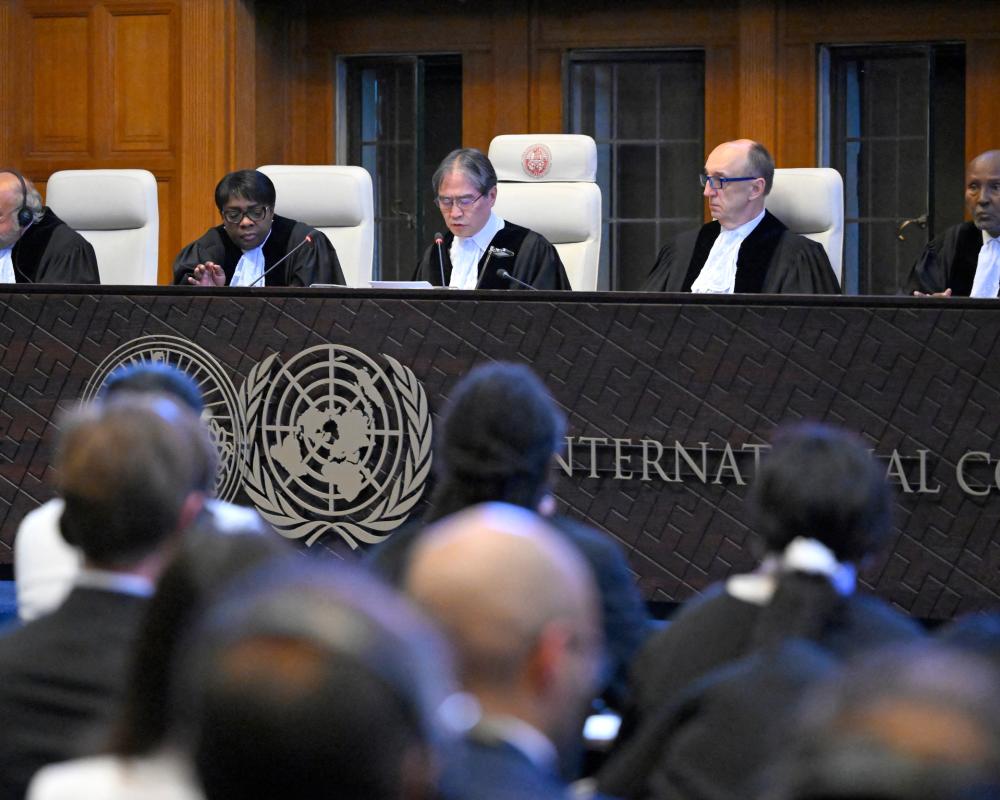
THE HAGUE / PNN/
The International Court of Justice ruled Wednesday that countries are legally obligated to take action against climate change, including addressing fossil fuel production, in a historic advisory opinion that could reshape global climate policy.
In its long-awaited opinion, the United Nations' highest court affirmed that states must take measures to prevent environmental harm, protect current and future generations from worsening climate impacts, and cooperate internationally to address the crisis. The court emphasized that climate action is not optional, but a binding legal duty under existing treaty regimes, human rights law, and customary international law.
The court stated that the continued production, licensing, and subsidization of fossil fuels “may constitute an internationally wrongful act,” adding legal weight to calls for ending fossil fuel expansion.
“This ruling is a concrete step toward faster action,” said Ralph Regenvanu, Vanuatu’s minister for climate change. “We’ve spent 30 years in UN climate talks. Now we’re using every legal tool available — from ITLOS to the Inter-American Court to the International Criminal Court — and this opinion shows that effort is paying off.”
The court also underscored that international cooperation is foundational to solving climate change, with treaties and coordinated implementation being central. This mirrors recent efforts by a coalition of 17 countries advocating for a Fossil Fuel Non-Proliferation Treaty, several of which initiated the case before the ICJ.
Vishal Prashad, director of Pacific Islands Students Fighting Climate Change, said the court’s affirmation of the science and law offers hope for vulnerable communities.
“This opinion is a lifeline,” he said. “For small island states, Pacific communities, and future generations, this moment is historic. The ICJ has mandated a fossil fuel phaseout — and we’re one step closer to achieving climate justice.”
The opinion reinforces long-standing demands by climate-vulnerable nations and frontline communities that wealthier, high-emitting countries must reduce emissions, halt fossil fuel development, and finance adaptation and compensation for those harmed by the crisis.
Kumi Naidoo, president of the Fossil Fuel Non-Proliferation Treaty Initiative, called the ruling a wake-up call.
“The ICJ confirmed what we already knew — states have a legal duty to protect people and the planet from fossil fuel harm,” he said. “This strengthens the case for a Fossil Fuel Non-Proliferation Treaty that turns this legal obligation into real-world action.”
The court made clear that the status quo is incompatible with international law. Its findings are expected to influence global climate negotiations, national policies, and lawsuits for years to come.
The judges stressed that international legal frameworks impose binding obligations on all states, not just signatories of climate-specific treaties. The right to life, health, and a healthy environment are core principles that underpin the court’s interpretation.
Although the opinion is nonbinding, it carries considerable moral and legal authority. It follows the path of recent landmark rulings by the International Tribunal for the Law of the Sea and the Inter-American Court of Human Rights, setting a strong precedent for future climate justice cases.
“This is just the beginning,” Prashad said. “Now it’s up to communities and governments to act.”